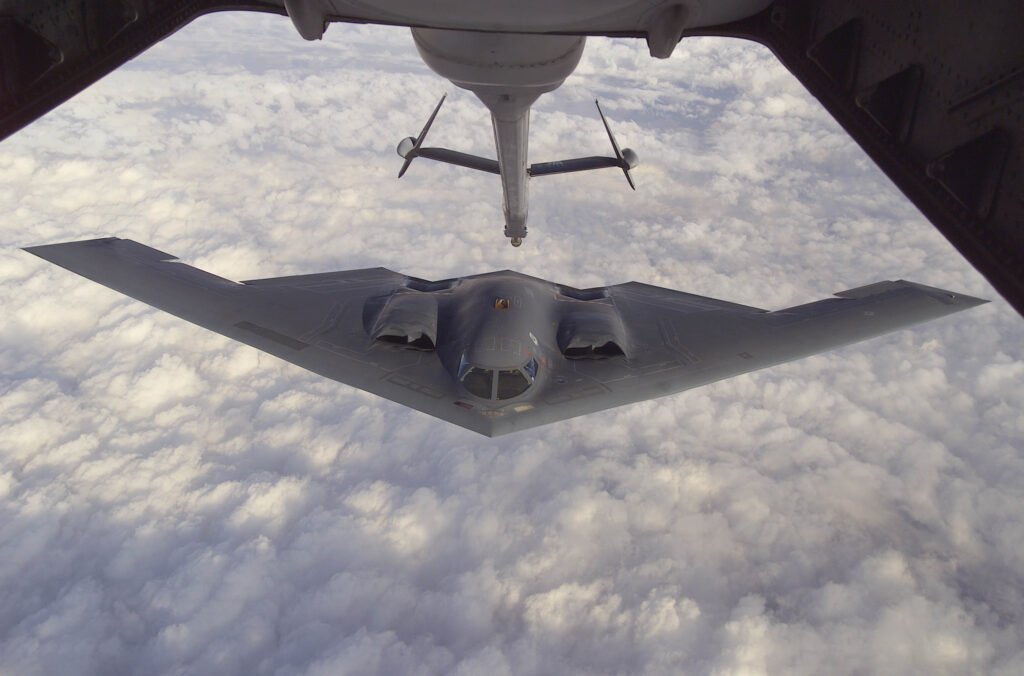Yemen: Houthi fighters vow to retaliate US B-2 bombers strike on weapon storage

The B-2 Spirit approaches the boom of a McGuire Air Force Base, New Jersey KC-10A Extender during a Capstone orientation flight. Capstone is a Joint Airborne/Air Transportability Training mission providing interservice training for the wartime application of airlift. Through Capstone, senior level officers are able to observe the significance of airlift and its role in all military operations. The B-2 Spirit is a multi-role bomber capable of delivering both conventional and nuclear munitions. It is a dramatic leap forward in technology and represents a major milestone in the U.S. bomber modernization program. The B-2 brings massive firepower to bear, in a short time, anywhere on the globe through previously impenetrable defenses. The B-2 provides the penetrating flexibility and effectiveness inherent in manned bombers. Its low-observable, or "stealth," characteristics give it the unique ability to penetrate an enemy's most sophisticated defenses and threaten its most valued, and heavily defended, targets. The B-2's low-observability provides it greater freedom of action at high altitudes, thus increasing its range and a better field of view for the aircraft's sensors. Its capability to penetrate air defenses and threaten effective retaliation provide a strong, effective deterrent and combat force well through the 21st century. The aerial refueling took place aboard a McGuire AFB, New Jersey KC-10A Extender on October 5, 2000. (U.S. Air Force photo by Staff Sgt. Scott H. Spitzer)
Yemen’s Houthi militia has threatened to retaliate after the United States launched multiple strikes using heavy B-2 bombers on weapons storage facilities within their controlled areas.
The Iran-backed group’s political bureau issued a statement, affirming that “the American aggression will not pass without a response.” This bold declaration comes on the heels of US military action aimed at crippling the Houthi’s military capabilities.
The US strikes were reportedly a response to the Houthi’s relentless attacks on international shipping vessels in the Red Sea.
Despite warnings from the international community, the Houthis continued to escalate their aggression, prompting the US to take decisive action. The US government has justified its military intervention as an act of self-defense, citing Article 51 of the United Nations Charter.
Experts argue that the Houthi’s miscalculation of US resolve has led to this point. The group believed that the US would only respond if American lives were lost or US assets were directly targeted. However, the formation of an international coalition to secure the Red Sea and protect global shipping lanes has shifted the dynamics.
The US and its allies have demonstrated a willingness to take collective action against the Houthis, rendering their previous assumptions obsolete.
As tensions escalate, concerns arise about potential repercussions, including further military escalation, jeopardizing fragile UN-led peace talks between Saudi Arabia and the Houthis, and strengthening Iranian influence in the region.
However, analysts suggest that the US-led strikes may reduce the Houthi’s ability to wage war and destabilize the region.



